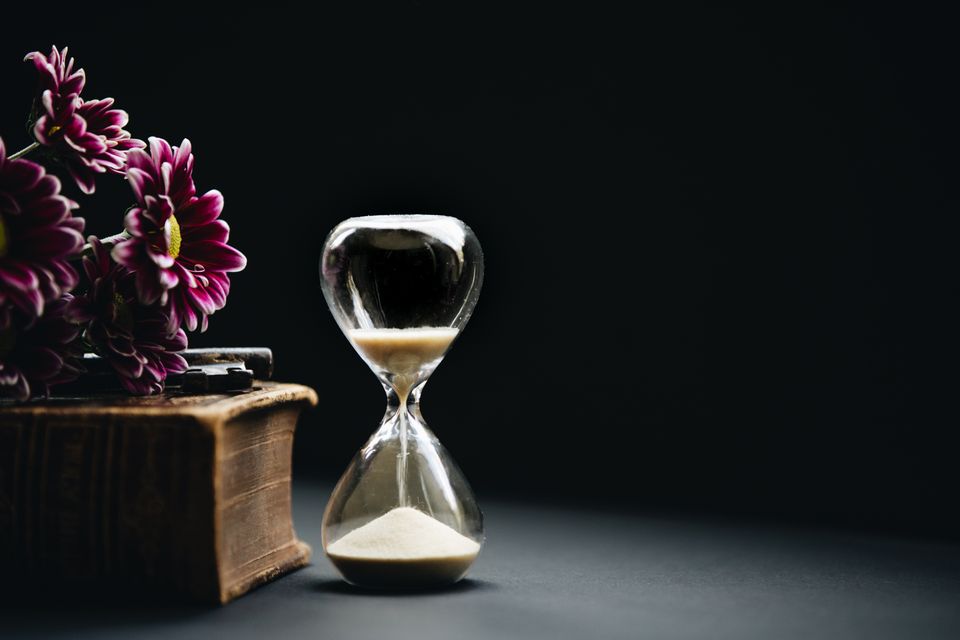Time on the Cushion.

This weekend I read an interesting framework for progress on the path in Altered Traits. Based on a wide sample of meditation research, they categorized practitioners according to three stages of development:
- Beginner, with less than 100 practice hours.
- Long-time practitioner, with greater than 1,000 practice hours.
- Yogi, with greater than 10,000 practice hours.
While these numbers shouldn't be conceived as fixed stages of growth and development, they do offer a handy framework for looking at our own practice.
Before we get into the particulars of each stage, let me first introduce a function by which we can determine where we are in our own practice. In mathematics, a function is used to determine the relationship between a set of independent variables. For our meditation practice, we can consider the following function:
f(x,y,z) where:
x=number of practice days
y=duration of session (hours)
z=sessions/day
Let's imagine someone has been practicing 15 minutes a day for one year. For this person f(365 x 0.25 x 1)= 91.25 practice hours. So even after a year of practice, we could consider this person to still be a beginner.
Now let's imagine that someone has been practicing for 30 minutes per session, for two sessions a day for two years, and has completed one ten day retreat where they meditated for 10 hours a day. For their daily practice f(730 x 0.5 x 2)=730 hours, and for their retreat f(10 x 10 x 1)= 100 hours. So in total, this practitioner has logged about 830 practice hours, meaning they have considerable experience and are close to falling in the long-term practitioner range.
For reference, the yogi stage is quite remote. Imagine practicing two 3 hour sessions a day, it would take 4.5 years to reach this advanced stage of practice, f(1,667 x 3 x 2)= 10,002 practice hours.
Why does this matter?
It gives us insight into where we are in our own practice.
And it introduces us to another important point: time on the cushion matters.
Beginner
Let's start with understanding the beginner with less than 100 practice hours. This person should focus on familiarizing themselves with the mind and its nature. How does the mind work? What are the basic skills we need for meditation? What is the mind like when it is moving and what is it like when it is at rest?
Even as a beginner, there are a lot of benefits that we can enjoy. Studies have shown that 10 minutes of counting the breath done for 14 days can increase attention and calm the mind. Another study has shown that 20 minutes of practice a day for 7 days can decrease reactivity to disturbing events. When it comes to cultivating positive emotions, ten 20 minute sessions has been shown to increase empathy and compassion when doing Tonglen, and another study confirming after just 8 total hours of practice an increase in positive emotions like love and compassion.
Research has even shown that after 8 weeks of meditation practice, people can see improvements in depression, anxiety, pain, and even trauma.
In the short term, the practice can be transformative even for beginners.
My recommendation for beginners is to gain familiarity with their own mind. Understand how intention and attention are connected. Start to gain an understanding of the relationship between mindfulness and vigilance. Learn how to work with agitation and dullness in your meditation. These are fundamental skills that you need in order to continue to deepen your practice.
As you become more familiar with the mind, you also start to understand its nature. You start to experience peace, calm, and clarity. You are able to abide in equanimity for periods of time. You might experience bliss, insight, or even thought free mental states.
By spending time on the cushion, you will have meditation experiences, but more importantly, you will have your own experience to learn from and explore more deeply.
Long-term Practitioner
Long-term practitioners with over 1,000 practice hours have different goals and purposes for meditating. While many beginners are on the wide path of wanting to see what meditation is about and what benefit it might have, long-term practitioners are often on the deep path of spiritual growth and development. There is something that is motivating them to explore the nature of the self, consciousness, or our place in the world. They are self-motivated, committed to a daily practice, and have the discipline to continue the practice despite all the other things in life that are calling for our energy and attention.
The experience of the long-term practitioner really depends on the tradition they are practicing, but we can say long-term practitioners will be familiar with mind and its nature. They will have some level of mastery over the beginner's level of experience, and will have started to explore the more subtle aspects of the nature of the mind. Usually under the guidance of a teacher, they will be working with movement and stillness, understand the illusory nature of experience, grapple with the experience of emptiness, and may even recognize naked awareness.
On the road to being a long-term practitioner, many of the meditation states we experience start to become traits of who we are in our daily life. This person will likely exhibit less stress, worry and fixation. They will have more self-awareness, mindfulness, and attention. They likely will be more selfless, compassionate, and have an easy manner about them.
In long-term practitioners, research has shown a decrease in inflammatory markers, decreased blood pressure, a stronger immune system, decreased respiratory rate, and longer telomerase which is a predictor of longevity.
The benefit of a long-term contemplative practice is not only a healthy mind, but also a healthy body.
Yogi
The yogi is really a master meditator. It is hard to speak about their motivations or the purpose of their practice, but it likely includes liberation, awakening, and the promotion of human flourishing.
If you can find a yogi, you should probably study with them. Yogi's make great teachers. Make sure to check them out, but in general they are a good place to ask questions, look for guidance, or simply talk about meditation.
So where are you?
Hard not to look where you are on the framework right?
I've been meditating for about 18 years (6,570 days). If I took a conservative rough average of 30 minutes a day during that time it would give me about 3,300 hours (obviously I missed many of those days, but 3.5 hours a week seems pretty reasonable). I've also done ten-ish ten day retreats averaging 10 hours a day, so that is about another 1,000 hours. Not counting all the workshops I have led or the teachings attended, I can reasonably say I'm in the 4-5,000 hour range.
A decent amount of experience, but I am not a yogi. Yet.
Don't get caught in the numbers. Spend time on the cushion, that's where it counts.
You might also be wondering about the gap between the beginner and the long-term practitioner, from 100 to 1,000 hours. That's where you get to decide if you want to follow the wide path or the deep path. That's where you decide based on your own experience if you want to live a life dedicated to practice.




